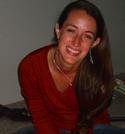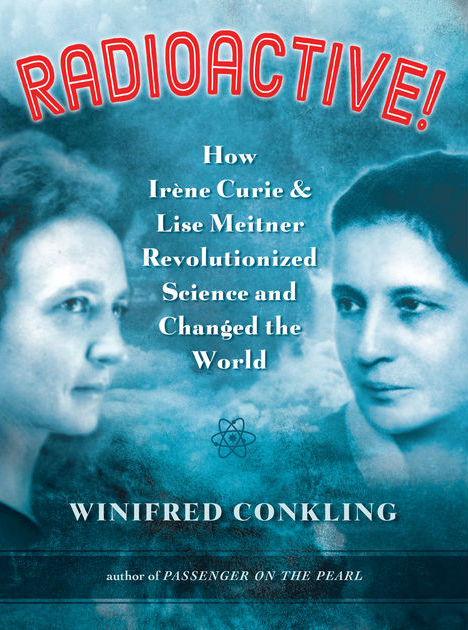|
By Courtney Thomas
When asked to name an important female scientist, most people could come up with a few names. Most would know Marie Curie and Jane Goodall. Perhaps a few others would know Rosalind Franklin, Rachel Carson, Elizabeth Blackwell. But in chemistry and physics, fields that are still dominated by men, there are two names that likely don’t appear so often on that list: Irène Joliot-Curie (the daughter of Marie Curie), and Lise Meitner. What was it like to be a woman in science in the 1920s and 30s? What was it like to do research in Germany in the 1930s? What was it like to be the daughter of Marie Curie, being inspired by and doing research in her shadow? What would it feel like to be excluded from the Nobel Prize because your male collaborator discredited the impact of your role? These are just a few of the questions that are answered in Racioactive! by Winifred Conkling. The author seeks to put these oft-forgotten women back into the historical narrative. She highlights their important contributions to chemistry and physics. While a great read on its own, it is also a great book to use as a guide for what could be very interesting discussions. Feminism and the Joliot-Curies. While their professional names (i.e. the names on their scientific publications) were Joliot or Curie, when Irène Curie married Frédéric Joliot, they both changed their surnames to Joliot-Curie. What would it have been like to make the decision to change the family name to include the wife’s family, in a time when women did not yet have the right to vote? (It was not until 1944 that women in France were able to vote, and Joliot and Curie married in 1926.) Meitner and Nazi Germany. How might your research (or dedication to research) change if you were working during a war? Both Irène Curie (during WWI) and Lise Meitner (during WWII) experienced war firsthand. The story of Lise Meitner’s life in and escape from Germany is one of the most action-packed in the book, and is a rich area for discussion. Scientific Knowledge and its Application (For Good or for Evil). The Joliot-Curies were against self-censorship, and thought that, as scientists, they had an imperative to publish their work to increase scientific knowledge. Given that researchers in radioactivity and fission in the 1930s became increasingly aware of the implications of their research, there was some debate around whether findings should be immediately published, or if publications should be withheld in the interest of security. Should scientists have a moral scope? Should scientists censor themselves if their work could be used to harm others? If you make an important or interesting discovery, what role should you play in future applications of your research? Part science lesson, part history lesson, and wholly empowering to women in STEM, this young adult novel is a great summer read to get inspired for your studies in the fall. 
About the Author
Courtney Thomas is currently working as a postdoctoral researcher in Cancer Biology at the Ecole Polytechnique Fédérale de Lausanne in Switzerland. She received a B.S. in Chemistry from Furman University in 2007, and a PhD in Inorganic Chemistry from UCLA in 2012. While at UCLA, she developed a passion for communicating scientific ideas and for scientific outreach. She has developed scientific lectures for ages 5-adult, educational handouts, and a hands-on lab-based workshop to introduce high school students to academic research. When she’s not working in the lab, Courtney enjoys photography, writing about science, and exploring Europe. Comments? Leave them below!
0 Comments
Your comment will be posted after it is approved.
Leave a Reply. |
LIFESTYLE BLOGRead our lifestyle advice, written exclusively for pre-professional women in science and engineering. From advice about fashion, work and family balance, self, wellness, and money, we've got you covered! |
The Scientista Foundation, Inc. All Rights Reserved © 2011-2021 | Based in NY | [email protected]
The Network for Pre-Professional Women in Science and Engineering
The Scientista Foundation is a registered 501(c)(3) -- Donate!
The Network for Pre-Professional Women in Science and Engineering
The Scientista Foundation is a registered 501(c)(3) -- Donate!

